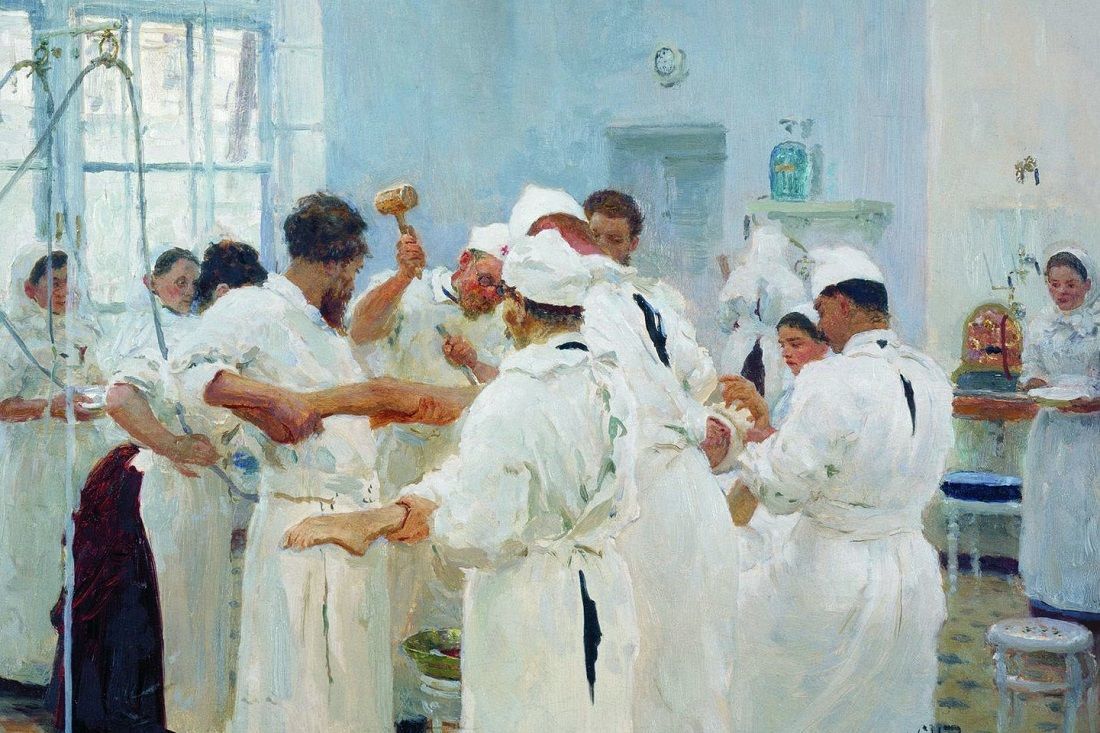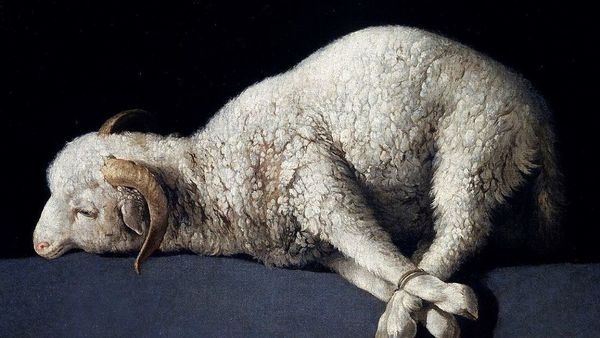About a year ago, I attended a panel presentation at an academic conference. The panel session was devoted to Protestant and Catholic narratives of modernity. Much of the panel discussion challenged the so-called, “decline narratives,” including:
- the narrative offered by Alasdair MacIntyre in ethics;
- the narrative offered by Brad Gregory in politics;
- and the narrative offered by Peter Harrison in the dialogue between religion and science.
Several of the panelists and the audience cried out against the narratives of MacIntyre, Gregory, and Harrison: “Their histories are wrong and selective with whom they engage.” The participants were strongly dismissive of the “narratives of decline.” They called them, “zombie narratives,” because “We keep killing them, yet they never die!” It was suggested afterward that people just needed “to get on with their own serious work” and ignore the ignorant scholars that continue to promulgate “zombie narratives.” The spirit of progress was certainly at work in the room and it cast aspersions on the “decline narratives.”
The panelists were attempting to parse the right history; they were certain that they were attending to the right sets of data; they were reading the right thinkers; they were getting the origin story right. A very sensible panelist suggested that there have been others that have found common ground with the narratives of decline, namely post-colonial and minority theologians. At least those post-colonial narratives understood that empire, modernity, and “progress” go hand-in-hand, usually to the demise of indigenous peoples and their narratives. These post-colonial scholars agreed with the decline narratives that something has gone wrong, or rather that something has always been wrong with the dominant narratives of modern progress.
Still, the dominant narrative in the room was that there was a vile past, out which we have climbed out. After the progress that has been achieved, certain narratives of modernity—decline narratives, promulgated by those who have lost, or are losing power—are only trying to bring us down from the progress we have made. If the zombie narratives are narratives of decline, then the narratives of progress must be the true narratives. The narratives of decline are the inverse images of the narratives of progress, and yet neither seem compatible with the Christian narrative.
Cultural Progress
Narratives of cultural progress are intimately tied to notions of moral, political, and scientific progress. The secular version of the progress narrative is that religion is the root of all evil. In relation to morality, the secular story of progress goes something like this: religion is the uneducated man’s morality; now that reason reigns, we can find the foundational moral principle for acting rightly, or the proper moral calculus, without all the make-believe of religion. The political progress story is similar: religion gets in the way of political stability, necessitating the powers of the state to adjudicate disagreements over the common good. The secular story of progress of science continues this theme: religion gets in the way of all the scientific progress, and has been at odds with science from the beginning of time.
We would do well to remember that “progress” in science is what gave us the eugenics movements of the late 19th and early 20th centuries, and the preaching of eugenics from the pulpits of many parishes (See: Christine Rosen, Preaching Eugenics). Progress sacrificed the bodies of Jews to enact the Aryan myth. Progress sacrificed the bodies black men and women for the “good” of medical knowledge. The utilitarian calculus is created, such that we can absorb some degree of transgression into our progress, so that progress can continue as long as there is a net positive moral calculation. After all, if progress is the goal—and let’s face it, it has become the unqualified good—then any interrogation of progress is perceived as a threat to all the imagined future goods. It seems that the narratives of decline are offered as a sobering counter-story to a narrative of progress at the heart of the West. As Jacques Ellul pointed out, even Marx needs technological progress in order to have economic progress (See esp.: The Technological Society).
Progress seems to be its own justification. And anyone who questions progress seems irrational. Thus, when they commit to narratives of decline, they look like they are committed to regression. But, if the narratives of MacIntyre, Gregory, and Harrison are in fact narratives of decline, then they are narratives created out of the shadows cast by the light of the narratives of progress. These unquestioned goods of progress reign supreme in trans- and post-humanist hopes to design our own evolution and a better future (Persson and Savalesuc), political hopes of progressive neoliberalism (or its communist inversion) and its economic dependence on technological progress, or the scientistic hope that the next scientific discovery will solve all of our problems.
Power, Progress, and Decline
Yet, even the binary of “decline” and “progress” narratives shares a common foundational understanding of reality. Progress seems too fragile a thing, requiring ever more power to maintain the progress made, and even more power to bring more progress. That is to say, progress and decline narratives are tied to a foundational understanding of power, let’s call it a power ontology. What I mean is this. In the contemporary understanding of the grand narrative of the cosmos, there are no substances, only the forces that throw things into being for a time. The cosmological narrative and the progress narrative share a power ontology that goes something like this. It starts with the power of the Big Bang, creating the power relations of fundamental particle physics represented in the foundational equation of energy and matter. The power of the sun is harnessed by plants and stored in the carbon bonds. Animals get their power from eating the foliage created by plants, utilizing the power stored in the carbon bonds. Human animals organize themselves in political and economic relations to create pacts for the securing of food and other sources of power. After all, the president of the United States just announced that we are protecting the oil—our primary source of power—in Syria, while not protecting noncombatants.
Those sources of power permit the human animal to create powerful technologies to make a more hospitable place for the human animal. Progress requires power. Progress narratives are powerful narratives used to consolidate political power and to hold sway over the cultural imaginary, promising that things will get better. Those that promulgate decline narratives, then, are trying convince people that society will not hold under the progressive regime. On this reading, it would seem that the narratives of decline act to push against the regnant narratives of progress that imagine the world to be power all the way up and all the way down. It is just a matter of working to coalesce the concatenation of powers in order to coerce the world to conform to the correct or the dominant narrative; it is the will to power at work. Even the drive to out-narrate one’s opponents is caught in power ontology.
Progress narratives—whether they be religious impulses to co-create the kingdom of heaven on earth, or secular impulses to designer evolution—do not permit any mention of decline as that disrupts the all-important work of building the future. Thus, any critique of progress comes across as a hope to return to some past golden age, which the progress narrative has to re-narrate as a decline narrative. There is no way to pause to ask: Is the world thus—the concatenation of forces harnessed by the human will to create what it wills: or is it thus that we have imagined and subsequently made the world?
Technology and the Progress Narrative
Bernard Stiegler, in his triology of books Technics and Time, argues that technology creates the first step in cultural evolution. In the story of biological evolution, it is the genetic mutation that results in the organism evolving into the next thing. Certainly, the genetic change must be conducive to survival in its environment, but the engine of evolutionary change seems to be the genetic disruption. Yet, Stiegler notes that human evolution, and human cultural evolution, are more complex.
Stiegler draws on the work of André Leroi-Gourhan, the French paleoanthropologist, who notes that the thumb and the use of tools developed prior to the development of the frontal lobes. In other words, it might have been the fact that tools (weapons) were used to permit hominids to survive, which in turn permitted the development of the frontal lobes and allowed humanoid species to emerge. To put it another way, before the genetic mutation that results in the frontal lobes—the seat of human intentionality—tools are already being used. The tool used for protection might have permitted the frontal lobes to emerge. So, evolutionarily we do not move from genetic mutation to consciousness, reasoning, and abstract thought to the creation of technology, but the other way around. The power of technology permits the weak, frail hominid to have more power over its competitors, permitting the genetic mutation that would result in larger frontal lobes. The human animal is by nature technological, that is to say, it is cultured, and evolves by cultural means. Human evolution proceeds by other than merely biological means. Life, Stiegler concludes, evolves by means other than life; it evolves by technology.
What does he mean by life evolving by means other than life? He notes that there are three inheritances. There is a genetic inheritance, certainly; a history embedded in the human genome. In addition, a person has her own personal history stored in her hippocampus—her lived memory; the memory of this inheritance is an epigenetic history, the memory of her lived experience. Yet, she has another history, an epiphylogentic history, the history that exists outside her, in memory supports, in technological memory supports, say books, for instance.
Technology transmits the epiphylogentic history. Before we recorded our writing with quills and ink, humans memorized their stories; rhyme and meter served as memory aids, a technical way to remember large volumes of information. The epic poems of the West, like Homer’s Iliad and Odyssey were memorized and performed; we have them not because they were memorized and passed down in an oral tradition, but because writing technologies developed. Once we had more reliable writing techniques and materials that would last longer, the written word took precedence over the spoken and memorized word. Then once the printing press comes along, culture itself had to change; even the Church would have to change due to the printing press. Literary culture became possible with the printing press. Technology as memory support, shapes our own understanding of our own past. Moreover, the technologically powerful tell the stories. They produce the movies to shape what we remember about ourselves.
One only has to think of photographs of your mother, or of your childhood; they help you to remember your past. Or think of Facebook throwing up memories for you, reminding you of a past. It might even remind you of a past that was not even that important to you. But in bringing that past up, Facebook now shapes what you will remember and carry with you. Technologies serve as memory supports for our history, our pasts, which in turn shape how we imagine our present and future lives. But it is not my own history, except insofar as it has been given to me through the memory support techniques.
Stiegler argues that technological innovation is really a powerful disruption of the regnant cultural routines. For example, prior to the printing press, the Church passed on the Christian message through the liturgical imaginary of a dramatic enacting of the Christian story. After the printing press, the Christian story was to be read, and subsequently ruminated over (See esp.: Ivan Illich’s In the Vineyard of the Text). The result of the technological innovation is cultural disruption that gives the human a modicum of freedom from its cultural routines of the prior Church, resulting in cultural evolution into literary culture. Technological mutation results in cultural evolution, which results in human evolution.
Still, Stiegler’s story of cultural evolution is caught up in the power ontology that animates our current way of thinking. The cultural routines are the programmatics of culture that set out the limits and boundaries of what it is acceptable to do. Violate those cultural routines and the powers that be, whether the powers of the state or the powers of social pressure will curb one’s freedom to act. All change comes from the disruption of these powerful routines, by the greater power of technological disruption, for example in the use of social media in the Arab Spring uprising. Human freedom to act is predicated on the suspension of cultural programs.
There is even a way to read the “narratives of decline” as the conservative impulse to protect the cultural routines; they are zombie narratives. The technological disruption is a decline from the cultural routines. And at the same time, the “narratives of progress” are a way of narrating the hope made possible by the disruption, the hope that the disruption creates the next novel cultural shift toward a future in which we co-create by cultural disruption and human innovation. Yet in both the notion of decline and progress, time is linear. The present is the point where we look back to what has been lost, or look forward to what will be.
Waiting on Power
It seems that Stiegler is partly right. Technological evolution leads to cultural evolution. Narratives of decline tell us about what from the past is being, or has been lost; narratives of progress tell us about what will be or what is possible in a future. Yet, Stiegler’s reading of technology, anthropology, and culture also seems wrong. After all, there are cultural routines that disrupt the regnant cultural logics of cultural practices. For example, the Sabbath rest in Jewish culture has its own suspensions built into it. The Friday evening liturgy marks the beginning of the suspension of the powerful logics of human activity; work must cease to create space for human freedom. Liturgical practices while constituting the culture, also create a kind of distance from the culture in the suspension of cultural routines. It is not merely technological disruption, but liturgical suspension that creates space from the routinization of powerful cultural logics.
For Christians, another suspension is the Advent suspension of the cultural logics. In the circle of the Church year, time is not merely linear, nor is it simple, identical repetition of the past. Ronald Grimes in his ritual studies notes that ritual is embodying power, decorum is cooperating with power, ceremony is honoring power, and magic is the wielding of power. Liturgy is the act of waiting on power. The liturgies of Advent, which are self-consciously liturgies of waiting, then are not merely the suspension of the power ontology regnant in technologically mediated culture. The Advent liturgies are also a disruption in the linearity of narratives from the past, reified again in the present for the execution of the future of cultural logics.
The liturgies of Advent come right before Christmas, but the readings do not announce the coming of the Christ-child. They announce of the end of history, the second coming of Christ, in power and judgement. Yet, at the end of Advent, we find not the arrival of Christ in power and judgement, but the gift of the Christ-child. Advent tells us we are awaiting the powerful Christ, but we arrive once again at the manger. Whenever Christ comes again, whatever “power” he will wield, it will be more akin to the gift of a helpless child.
The Christian message’s enactment in Advent liturgies does not merely invert the power of the progress narrative with a decline narrative, nor does it imagine itself in linear progress that must be protected against decline narratives. The Christian message does not invert power to gain more power, as Nietzsche suggests.
In fact, the Advent liturgy is not merely a suspension of cultural routines, nor is it waiting on power, as Grimes suggests. It is a cultural disruption of the power ontology itself, and thus also of the narratives of progress, and the narratives of decline. It announces a different ontology altogether. The Christ-child in the manger, helpless before all powerful forces, says that the world can be different than the one we have built for ourselves. It says reality is itself different than the concatenation of forces that we imagine it to be.


